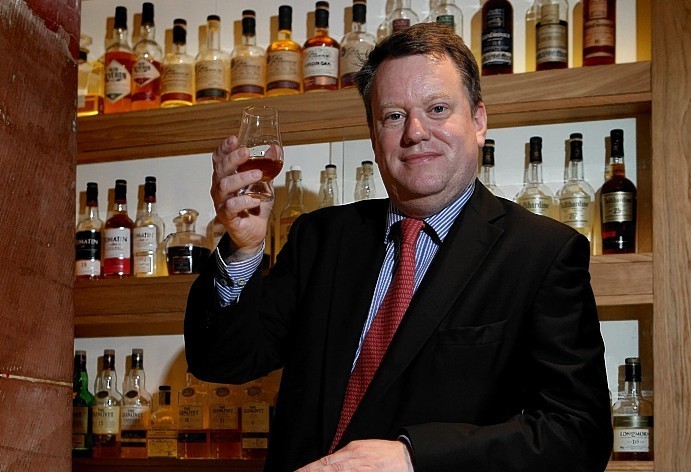The trade body for Scotland’s whisky industry has called on the UK government to give “high priority” to Scotch exports in any post-Brexit trade deals.
David Frost, the chief executive the Scotch Whisky Association (SWA), said departure from the European single market brought uncertainty but also “opportunities” for the sector – as long as the UK can secure “favourable bilateral trade deals with key export markets”.
The SWA has identified countries where “ambitious” free trade agreements could “eventually deliver significant benefits” to the industry.
Mr Frost highlighted that Brexit could see the UK make a fresh trade agreement with the likes of India, where he said “EU talks with India have proved challenging for a decade now”.
SWA set out priority areas to for the elimination of tariffs and trade barriers, including major markets with long-term potential such as India, China, and Brazil along with the wider Mercosur region of Argentina, Paraguay, Uruguay and Venezuela. Also on the free trade wish list is emerging markets such as Angola, Kenya, Nigeria, Burma, or Vietnam. The group also said established markets where further growth is possible – Australia and Thailand – would also benefit from a new free trade deal.
The body also dismissed concerns over whether the UK remained part of the EU Customs Union – the trade bloc whereby members negotiate collective trade agreements and impose a common external tariff on imports. Think tank Open Europe has estimated withdrawl from Europe’s free trade bloc could cost UK firms £25billion a year in extra costs. But SWA said the industry “sees little value” in the UK being part of the customs union: “The benefits would be outweighed by the limits on the UK pursuing an open trade policy and agreeing its own deals,” it said.
For all this to happen, the UK must bolster its British embassy network to focus on trade, the SWA added.
Scotch whisky exports were worth nearly £4billion in customs value, making Scotch the biggest single net contributor to the UK’s trade balance in goods and the country’s largest food and drink export.
Mr Frost said: “Brexit poses challenges and uncertainty but also brings opportunities if the UK can secure favourable bilateral trade deals with key export markets. India, for example, is a growing market for Scotch but we are being held back by a 150% import tariff. EU talks with India have proved challenging for a decade now and we hope the UK will now take a fresh approach to securing an ambitious trade agreement.
“We want the UK to have an open and liberal trading policy, to put transitional arrangements in place that minimise trade disruption after Brexit, and to negotiate better global arrangements than we currently have. An even more trade-focused British embassy network around the world will be needed to make this happen.
“The UK should be a voice for open markets globally. The more open the market, the more Scotch whisky exports will grow to the benefit of the wider economy.”
